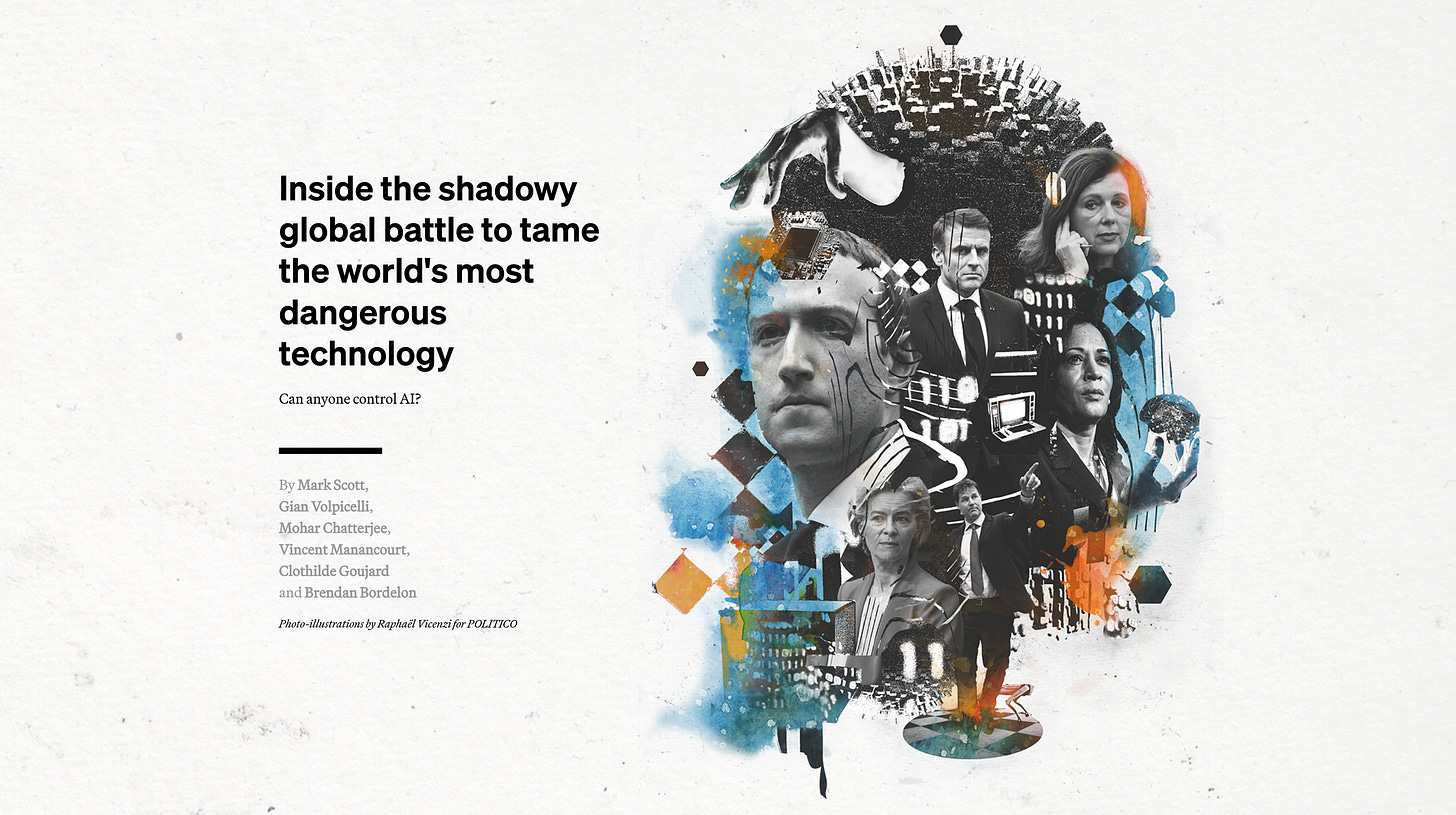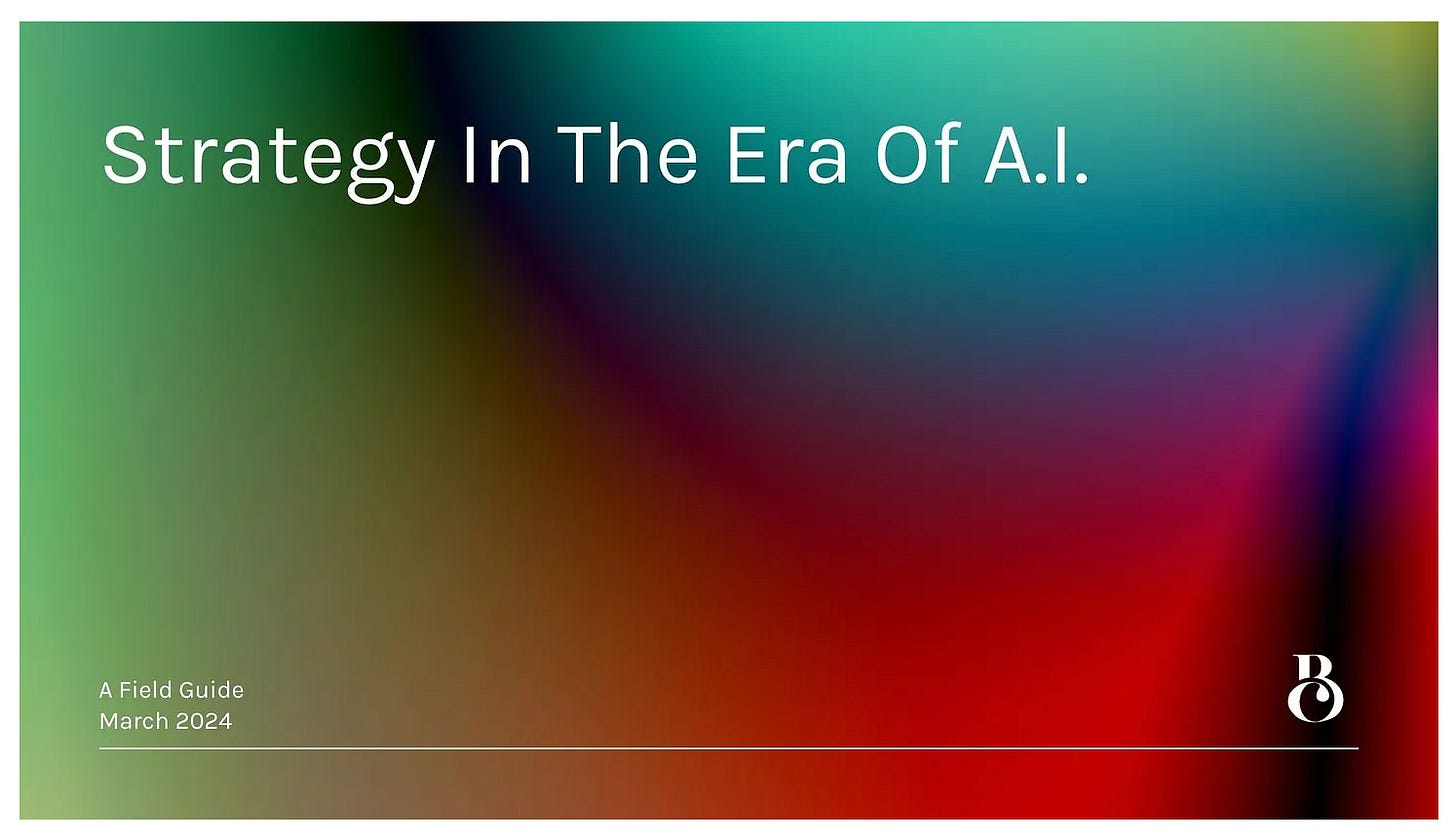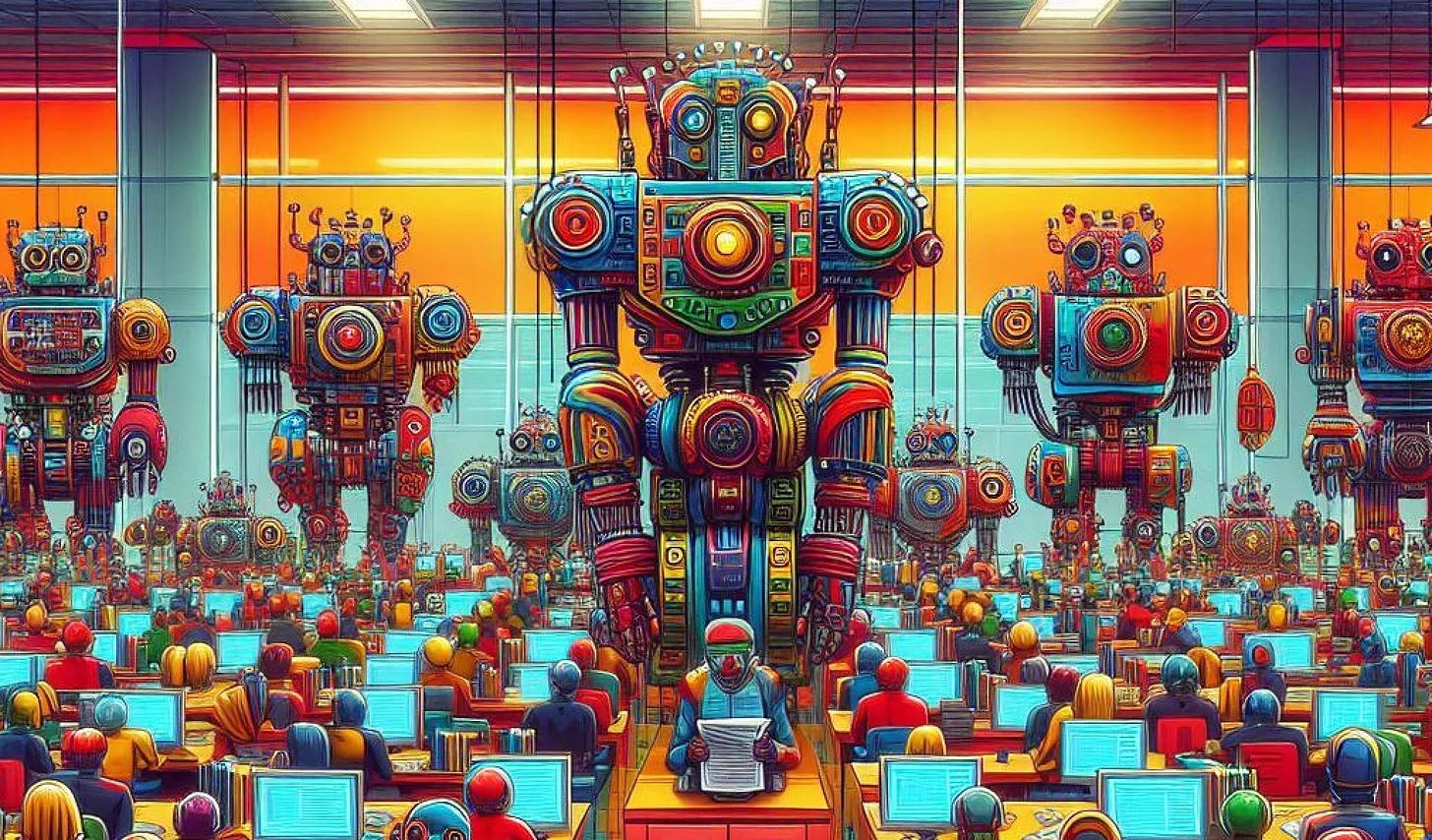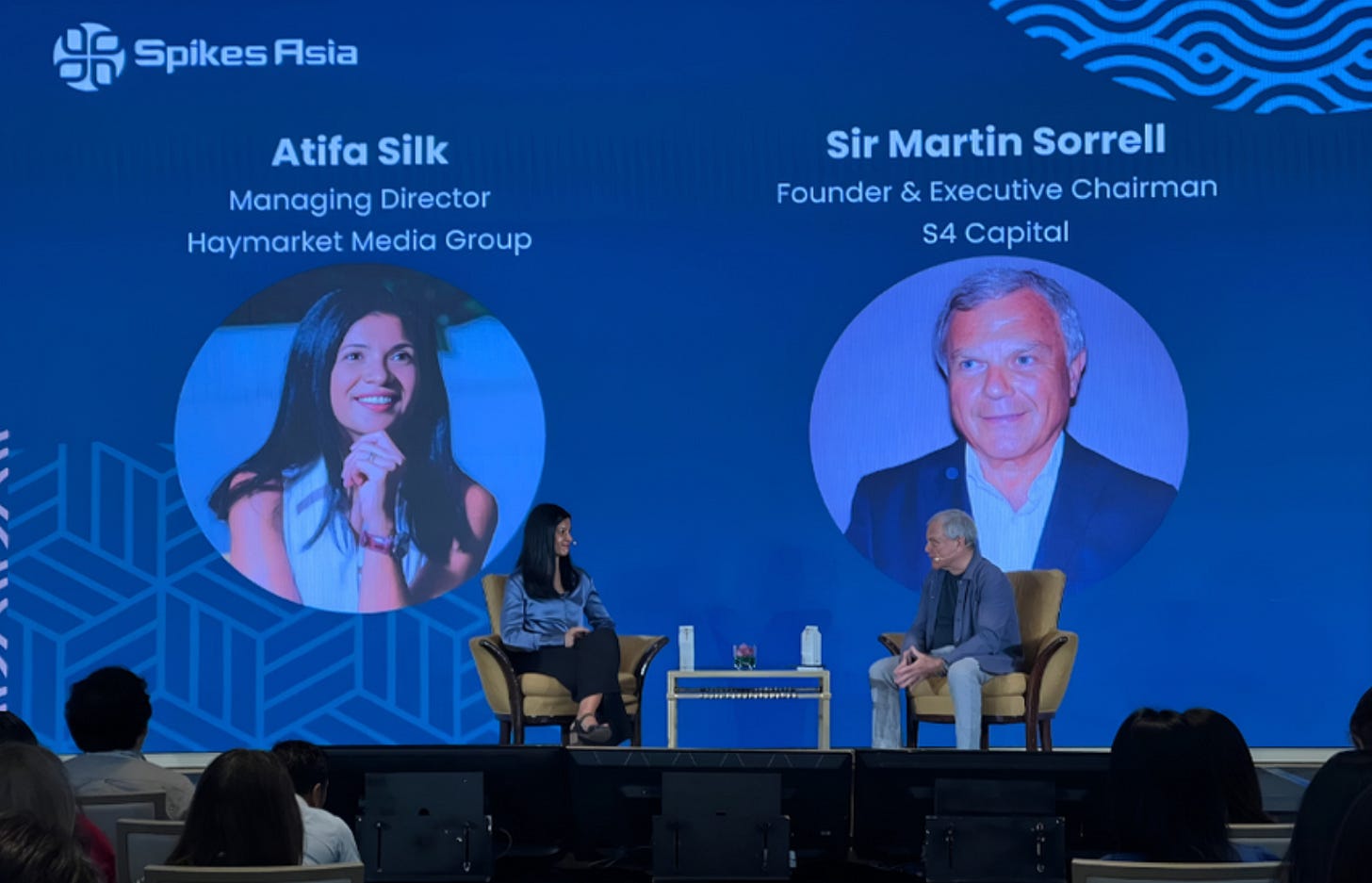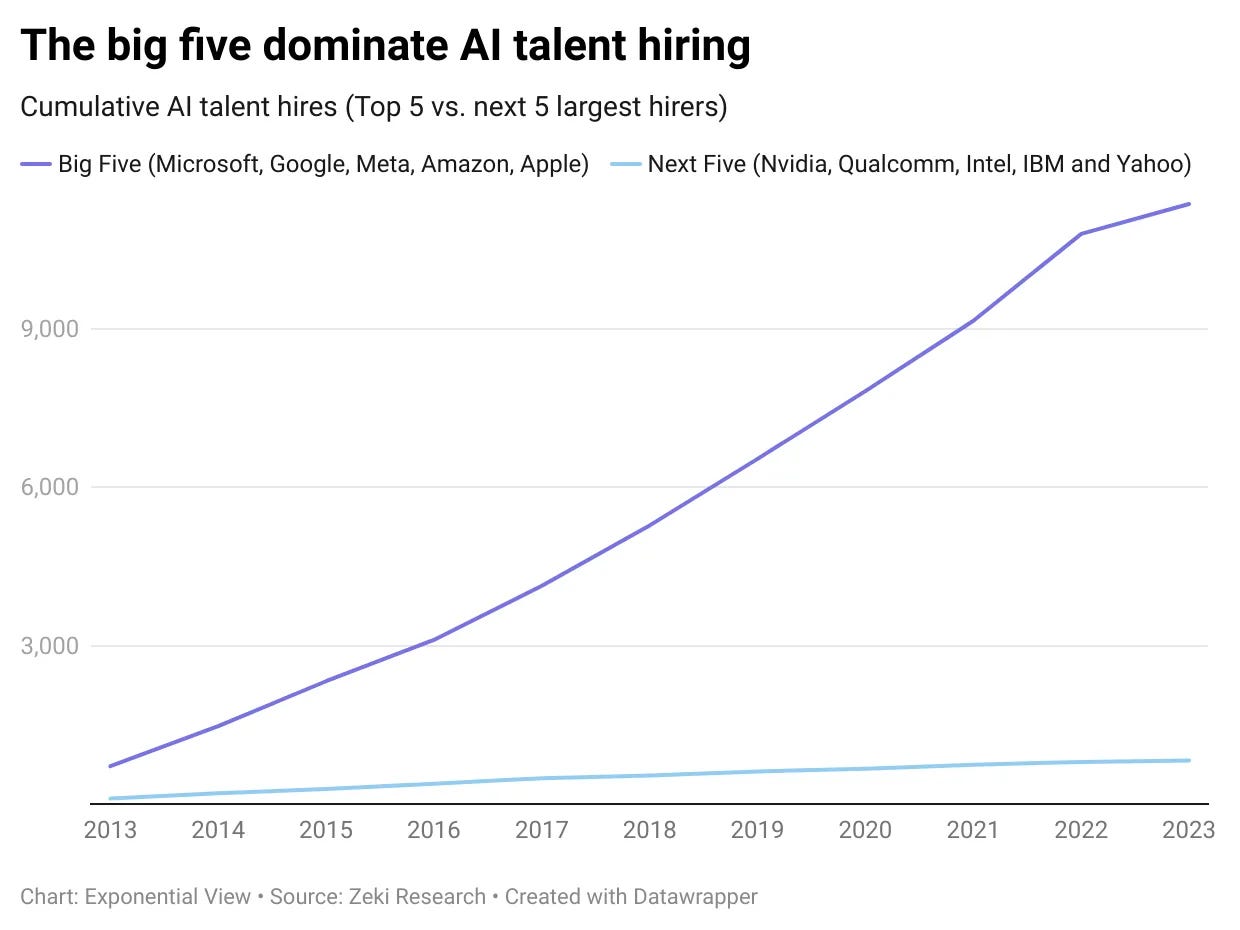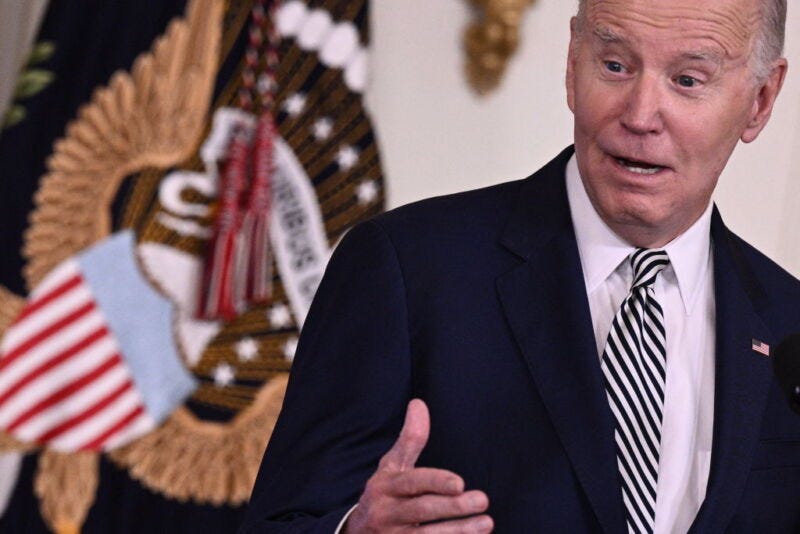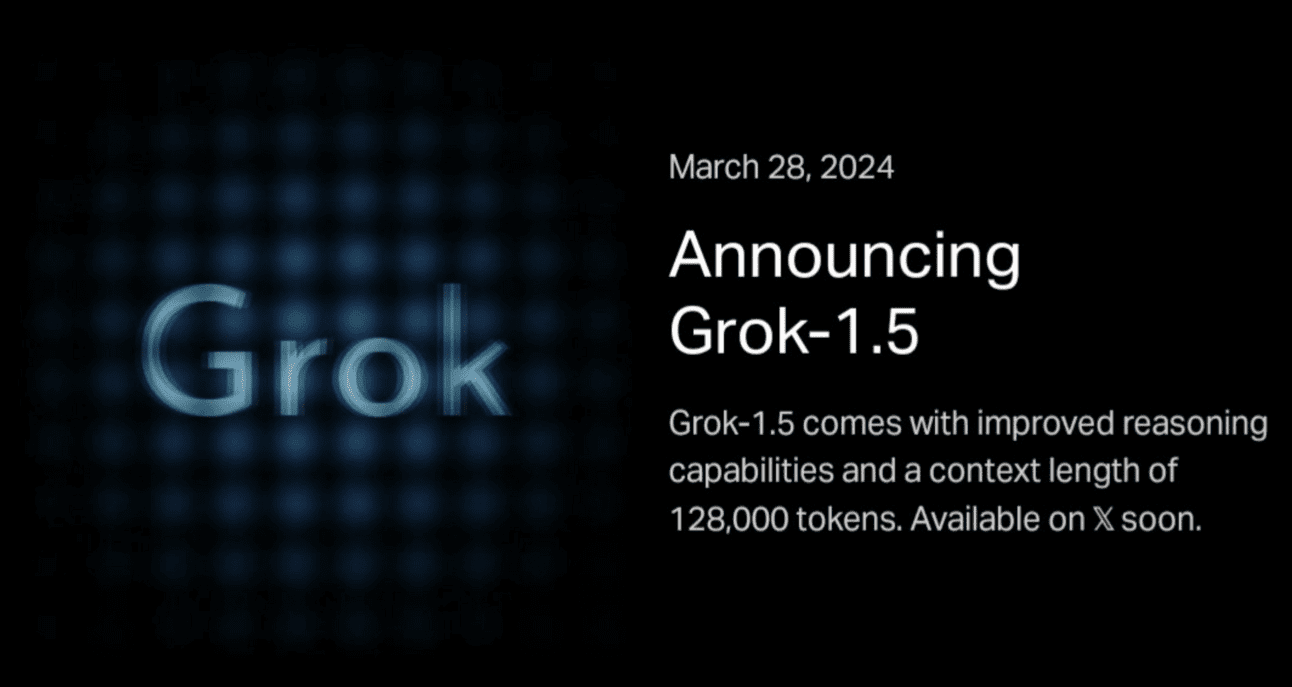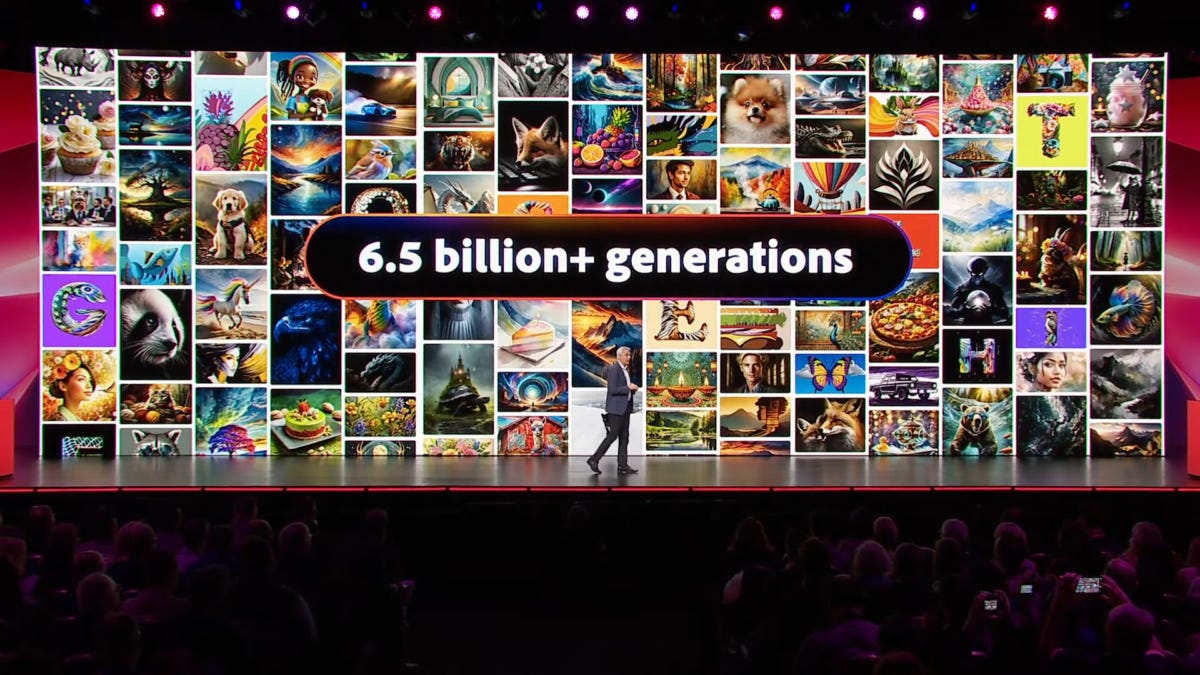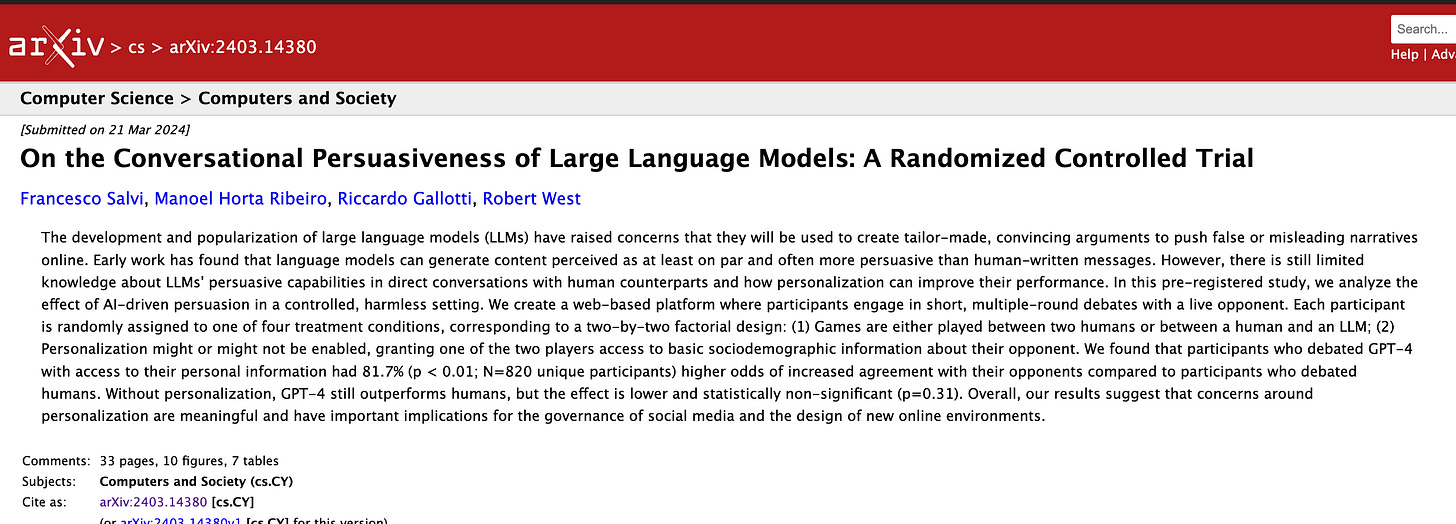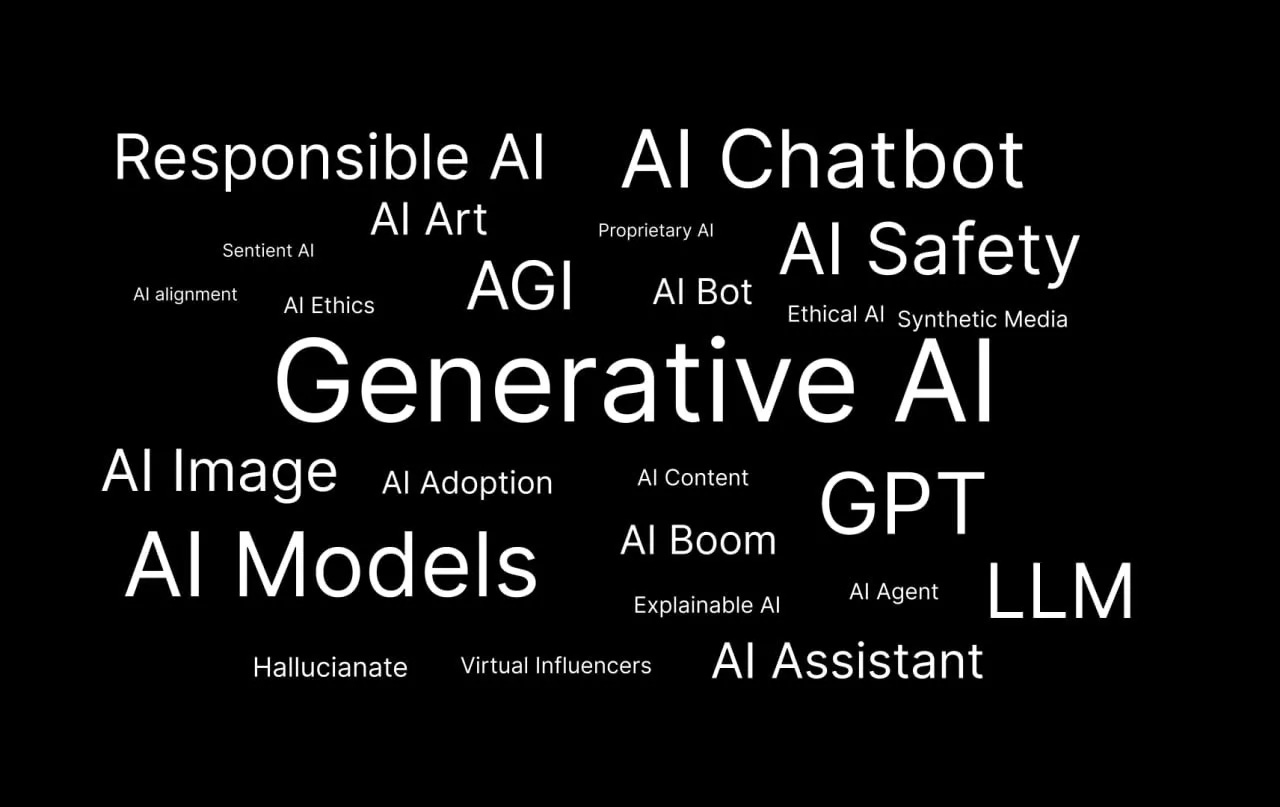Shadow Battles, Talent Wars, 100+ Chief AI Officers, and Our Changing Vocabulary
A few links and clicks for April 1st. No fools allowed.
Morning y’all!
I hope you had a good Easter weekend! If anything, many of us had Friday off which made it a wonderful opportunity to relax and do something different with a 3-day weekend — I know I did!
But the world of AI didn’t sleep and there’s a bunch of topics and links to peruse in today’s newsletter, so, we’ll jump right in! Have a wonderful week folks!
※\(^o^)/※
— Summer
An interesting article on regulating AI and the “big” players that are coming together to try to manage (or own) it.
“This business about AI’s loss of control is suddenly being taken seriously,” said Max Tegmark, president of the Future of Life Institute, a nonprofit that advocates for greater checks on AI. “People are realizing this isn’t a long-term thing anymore. It’s happening.”
Good luck with all of that.
A wonderful field guide on AI strategy with some really neat links to click within, many of which I hadn’t seen before. One thing I took away from it is simply the fact that Google and other search engines are quickly being stripped of their power — which you have much more sophisticated search available, why go to Google?
Google is making it attempt to gain market share around the newsrooms that publish content that you and I read every single day:
Google is pushing hard on a generative AI product that would help news outlets write, distribute, and monetize their work. “It feels very big,” one person with knowledge of the project told me. “It’s certainly a high priority project,” said another person within Google said.
I, for one, do not want Google to assist in the development of news so I’m pretty against this type of behavior. But, from a business perspective, it makes sense why they would. I hope they fail.
Saudi Arabia is making a huge push into AI development with a new $40b investment into the efforts. They have the funds to do it and I’m sure a ton of talent will find its way to their doorstep. I have a growing interest in this area since it came on my radar in the last year or so and I’m keen on knowing how it’s deployed.
Martin Sorrell says this on the fate of advertising agencies and 5 things that’ll change:
Visualisation and copy writing. What took three weeks can take two hours. More use of text to visuals. This is a double-edged sword for agencies selling their services on time.
Hyper personalisation. Netflix has already taught us how to use data to create content at scale. AI can help build content factories at huge scale. The price of the assets will go down but the number of assets deployed will be greater so it will be a positive for agencies.
Media planning and buying. This will be revolutionised as media planners and buyers are replaced with algorithms.
Agency and client efficiency. Linear marketing plans that used to cost millions will be reduced to hundreds of thousands and client-agency bottlenecks are streamlined.
Knowledge transfer. The ability for people to share information inside companies is going to be revolutionised by AI, creating flatter organisational models with the ability for all teams to upskill and act quicker.
We shall see, right?
An on the topic of change, a few thoughts on the future of research photography:
It seems like every professional domain is undergoing a paradigm shift as they seek to understand the roles that can humans play in an age of AI. The qualitative research community has valuable skills and perspectives to contribute and better navigate the changes ahead—given that we revel in complexity and in extrapolating second order effects.
As I’ve said before, AI will replace process, not people.
OpenAI’s voice engine can create amazing voices with just a 15-second clip of someone’s voice, an unreal feat when you take a step back. Soon, it’ll be 10 seconds, and then 5 seconds, and then… 1 second? Could you even imagine?
Bezi AI is a new video game engine that’s really, really impressive, speeding up your workflow by significant margins. At some point I’m going to make a small game because it’ll be crazy-easy to do so.
Microsoft is winning the talent war which means that you can more than likely believe that they will win the product war as well, as long as they can maintain their focus on delivering great ones without bureaucracy. And that’s hard to do as we’ve seen Google mired in a ton of it (and internal folks complaining).
An interesting read about how Emad Mostaque blew out his company. Thanks Reddit for the non-paywall! Unreal how he talked a “big game” but 4 days later stepped down. Pride comes before the fall?
This is interesting: Biden’s administration is ordering every federal agency to appoint a “Chief AI Officer” to make sure we’re all doing it right.
Agencies are encouraged to prioritize AI development and adoption for the public good and where the technology can be helpful in understanding and tackling large societal challenges, such as using AI to improve the accessibility of government services, reduce food insecurity, address the climate crisis, improve public health, advance equitable outcomes, protect democracy and human rights, and grow economic competitiveness in a way that benefits people across the United States.
That’s over 100 AI professionals in the next few years.
Grok 1.5 is out and it’s continuing to improve but isn’t quite where it needs to be competitively — yet. But, the one thing it has going for it is real-time information from its own hose of data and that could be the unlock that it needs to become dominant. And I love that it’s open source.
Adobe isn’t sitting on its butt and it’s continuing to advance its models to stay ahead of the game:
With the "Structure Reference" prompt add-on, you can easily make new images that have the same layout as another image. By using an existing image as a template, you can create many different variations that all share the same basic structure.
I have long had a love for Adobe products and I hope they can regain a lot of the marketshare they’ve lost by being slower than the rest.
A new paper released suggests that people like you and me are more likely to be persuaded in fact-to-face debates by LLMs versus humans. That’s saying something and, if true, could mean quite a bit for not only how we consume information but what we choose to actually believe. And the use is going up with more folks trying it every single month. But, can we trust it?
AI is shaping our vocabulary and here are a few graphs that explain the growth of a few terms that some of us use every single day.
That’s it! Have a great one!
※\(^o^)/※
— Summer


